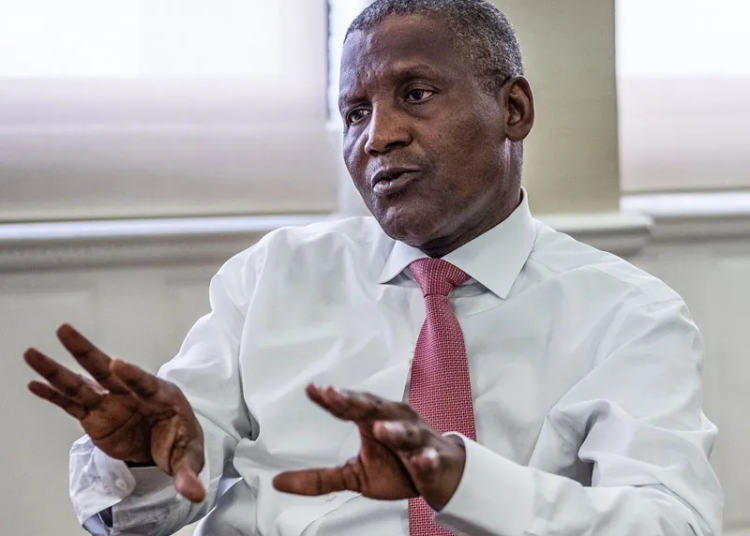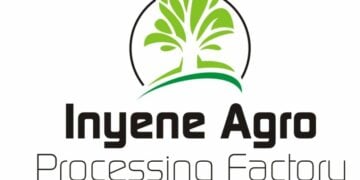The Dangote Petroleum Refinery and Petrochemicals FZE has approached a Federal High Court in Abuja, praying it to void the import licenses issued to the Nigeria National Petroleum Corporation Limited (NNPC), Matrix Petroleum Services Limited, A. A. Rano Limited, and four other companies.
The plaintiff’s contention is that the import licences issued to the defendants should be voided on the ground that it is already producing the imported petroleum products by those companies without shortfalls.
In suit number FHC/ABJ/CS/1324/2024, Dangote Refinery is also seeking N100 billion in damages against the Nigeria Midstream and Downstream Petroleum Regulatory Authority (NMDPRA) for allegedly continuing to issue import licenses to NNPCL, Matrix, and other companies for importing petroleum products such as Automotive Gas Oil (AGO) and Jet Fuel (aviation turbine fuel) into Nigeria, “despite the production of AGO and Jet-A1 that exceeds the current daily consumption of petroleum products in Nigeria by the Dangote Refinery.”
Other defendants in the suit are NMDPRA, Aym Shafa Limited, T. Time Petroleum Limited, and 2015 Petroleum Limited.
The plaintiff in its originating summons dated September 6, 2024, through its lawyer, Ogwu James Onoja, SAN, asked the court to declare that NMDPRA is violating Sections 317(8) and (9) of the Petroleum Industry Act by issuing licenses for the importation of petroleum products.
Onoja stated that such licenses should only be issued in circumstances where there is petroleum product shortfall, urging the court to declare that the NMDPRA is in violation of its statutory responsibilities under the Petroleum Industry Act (PIA) for not encouraging local refineries such as Dangote Refinery.
In an affidavit deposed by Ahmed Hashem, the Group General Manager of Government and Strategic Relations at Dangote Refinery, he submitted that the import licenses granted to other companies by NMDPRA for the importation of AGO and Jet-A1 are crippling the plaintiff’s business, to which it has committed substantial financial resources in billions of US dollars.
He noted that the plaintiff’s products are largely left unpatronised due to the alleged actions of NMDPRA.
The affidavit stressed that NMDPRA has threatened to impose and demand a 0.5% levy on the plaintiff on wholesales and off-takers, as well as another 0.5% levy on wholesales to the Midstream and Downstream Gas Infrastructure Fund (MDGIF) via a letter dated June 10, 2024, contrary to statutory provisions that limit the implementation of levies on transactions within Free Zones.
He emphasised that the foundational purpose of establishing Free Zones is to foster competition, attract foreign investment, and create tax havens.
Hashem further alleged that there is a grand conspiracy and concerted effort by International Oil Companies and interests, in conjunction with the defendants, who are unhappy that Nigeria has an indigenous refinery ready to solve the lingering energy crisis and save the economy.
“The intervention of the Honourable Court has become necessary in order to stem the incessant violation of statutory provisions by the 1st Defendant in favour of other entities such as the 2nd to 7th defendants,” the plaintiff stated.
The refinery’s legal team stated that the plaintiff is greatly distressed, and its investments risk being jeopardised unless the Honourable Court intervenes.
He sought an order of injunction restraining the 1st Defendant from further issuing and/or renewing import licenses to the 2nd to 7th defendants or other companies for the purpose of importing petroleum products.
In addition to a restraining order against the import licenses of the affected companies, the plaintiff sought “General damages in the sum of N100,000,000,000 against the 1st Defendant (NMDPRA) and an order of court directing the 1st Defendant to seal off all tank farms, storage facilities, warehouses, and stations used by the defendants for the storage of all refined petroleum products imported into Nigeria.”
Other reliefs partly sought by the plaintiff include the declaration that by the provisions of Section 8(1) of the Nigerian Export Processing Zone Act (NEPZA), Sections 23(h) and 55(1) of the Companies Income Tax Act (CIT Act), Paragraph 6 of the Second Schedule to the CIT Act, Regulation 54(2)(a)(i) of the Dangote Industries Free Zone Regulation 2020, and the Finance Act, the plaintiff, being an entity duly registered as a Free-Zone Enterprise, is exempted from all federal, state, and local government taxes, levies, and other rates.
It also seeks a declaration that it is against the NEPZA Act, CIT Act, Finance Act, and Dangote Industries Free Zone Regulation 2020, as well as legislative intent, for the 1st Defendant to impose or threaten to impose on the plaintiff an additional financial obligation of a 0.5% levy meant for off-takers of petroleum products directly and an additional 0.5% wholesale levy in favor of the Midstream Downstream Gas Infrastructure Fund (MDGIF).
The plaintiff further prayed the court for an order of mandatory injunction directing the 1st Defendant to withdraw immediately all import licenses issued to the 2nd-7th defendants and other companies other than the plaintiff and other local refineries for the purpose of importing refined petroleum products into Nigeria.
Also, an order of injunction restraining the 1st Defendant from imposing and demanding a 0.5% levy meant for off-takers of petroleum products directly and an additional 0.5% wholesale levy in favor of MDGIF or any other levy or sum against the plaintiff.
At the resumed sitting before Justice Inyang Ekwo, counsel for the plaintiff, George Ibrahim SAN, informed the judge that there is a development in the case as the parties are trying to settle.
“My lord, there is a development in this matter, which the lead counsel, James Onoja SAN, has asked me to bring to the court’s attention. At the time we were trying to serve the originating summons on the defendants, they started discussing,” he said.
He requested an adjournment to allow the parties the opportunity to reach a settlement, suggesting that the court should adjourn for either a possible report of settlement or a report of service.
“Case adjourned to January 20, 2025, for report,” Justice Ekwo responded.





